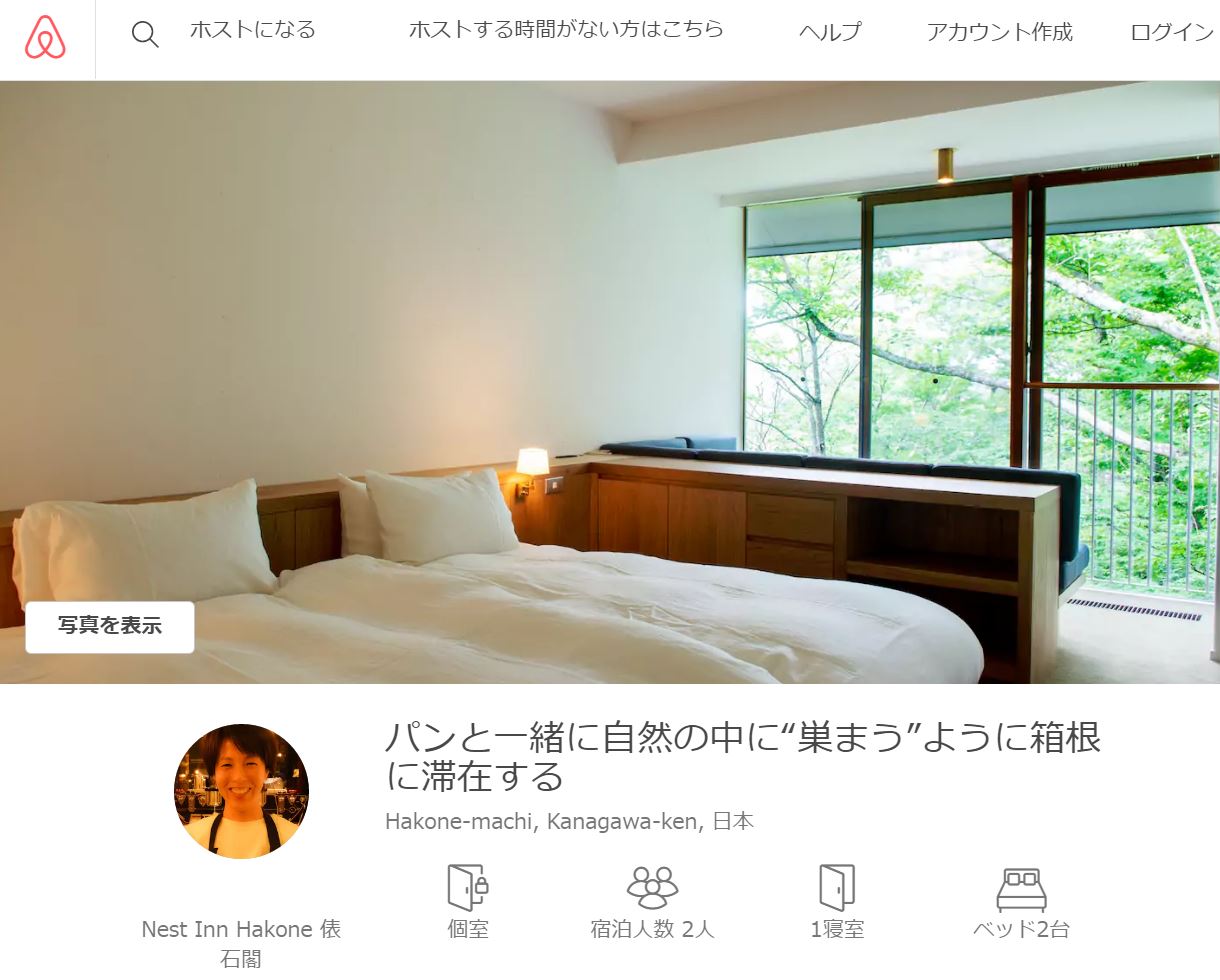
Airbnb has tied up with three ryokan providers in Hakone, Shibamata, Tokyo and Setouchi to extend its listing options for its community. This is the first step to extend traditional hotels or ryokans under Hotel Business Act.
Hidetomo Nagata, head of Home Sharing Business at Airbnb Japan, explained, “Each of the four properties has close relationships with local communities, and their properties are very friendly to our philosophy of contribution to local revitalization.” Airbnb Japan has an idea to increase listings of traditional hotels or ryokans in framework of business tie-ups.
As the four properties, NEXT INN HAKONE in Hakone, Shibamata FU-TEN Bed & Local in Shibamata, Tokyo and Kitahama Sumiyoshi Stay and Setouchi Stay that are managed by NPO Archipelago, are controlled under Hotel Business Act, they will not be regulated by a new vacation rental rule, which is expected to pass the Diet in this coming spring. Accordingly they can list their rooms on the Airbnb platform year round.

It is possible for a hotel or a ryokan to list its room on the platform according to their judgment Nagata, however, said that listings through our tie-up process ensure high quality by necessity because we apply them to our original judgment process. Commission paid from a property to Airbnb is 3% in the same manner as usual vacation rental home.
Airbnb Japan is also willing to exploit cultural or historic heritages in local regions as vacation rental listings in cooperation with the local governments.
Nagata said, “Omotenasi or hospitality served by Japanese hotels or ryokans has a strong appealing power to the world, and fits with Airbnb’s goal of maximizing travel experiences.” Hotel or ryokan rooms listed on the Airbnb platform are booked online in the same manner as OTA, however Airbnb intends to differentiate OTA by appealing local revitalization and local experiences particularly.
In the meantime, Airbnb Japan has recently announced that they have ideas to add new services or functions to adapt possible regulations in a coming new vacation rental law, such as a function to exclude a property with upper limit of regulated business days from listings on the platform or an outsourcing service for tax collection or tax payment.




